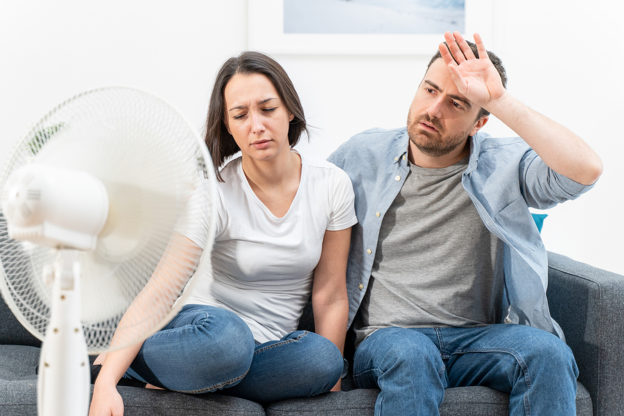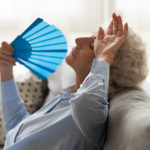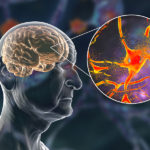By David Blyweiss, M.D., Advanced Natural Wellness
July 28, 2021
Down here in south Florida we worry about hurricanes. In states like Texas, Oklahoma and Kansas, it’s tornadoes. You’ve got the deadly winter storms in the northeast and floods in the east and Midwest.
Now these types of events happen on a fairly regular basis. But we’ve never seen anything like the heat waves that have been happening this summer. It’s been one record high after another, many of them well over 100 degrees – an event that, according to reports, could only be expected to happen just once in a thousand years.
What’s surprising is that there are more fatalities from heat waves than any other weather-related threat, including floods, tornadoes or hurricanes. I didn’t know that until just recently.
I expect my summers to be hot. After all, I live in the Sunshine State. Everybody down here has air conditioners. We also have a lot of fans; ceiling fans, box fans, swirling fans and battery-operated fans that we pull out when the A/C breaks. And if the power goes out for a week or two after a tropical storm or hurricane, we’ve learned unique ways of staying cool.
Open your arteries, improve blood flow for a new health miracle...
Did you know your circulatory system has over 60,000 miles of arteries, veins and other blood vessels, if stretched end to end?
But as you age, your blood vessels undergo changes, which may cause them to stiffen, thicken and get clogged.
GOOD NEWS! Doctors have now identified a “Miracle Molecule” inside your arteries that helps OPEN your arteries and IMPROVE blood flow.
It’s what Dr. Valentin Fuster calls it, "One of the most important discoveries in the history of cardiovascular medicine."To you, that means...
- Healthy blood pressure
- Sharper mind and memory
- Skyrocketing energy and muscular strength
- Increased pleasure and passion in the bedroom
- Improved circulation to every cell and organ in your body
Go here to discover a new natural way to significantly boost the levels of this miracle molecule in YOUR body NOW!
But many regions have never experienced the extreme temperatures they’ve been feeling this summer. They aren’t used to the heat. And a large portion of those populations don’t have air conditioners. So it’s absolutely miserable for them. They end up being hot all day long and continue to be overheated during the night. Their body never has a chance to cool down.
The body just can’t deal with this day after day. You’ve got to find ways to stay cool to prevent a heat-related illness.
How to Cool Down on a Hot Day
Drink plenty of water, even if you don’t feel thirsty. Extremely high temperatures will suck the moisture right out of you. So keep yourself hydrated. If heading outdoors, carry extra water in a fanny or backpack cooler.
Eat for the heat. Foods that are salty, sugary or fried are some of the worst foods to eat during a heat wave. Instead, zero in on hydrating foods like leafy greens, cucumbers, celery, avocados and fresh fruits. Not only are they better for you in a heat wave, they don’t require turning on the stove or oven and making things even hotter.
The World's Quickest Solution for Ending Prostate and Urinary Misery
This has recently been revealed to be one of the only real breakthroughs in prostate health.
The seeds of a strange fruit (sometimes called "Chinese Apples") hold powerful phytonutrients that are a revolution in prostate health.
In fact, UCLA and Veterans Administration research have now proved this to be true.
Not only that, but it may be the worlds quickest solution for ending prostate misery.
Simply stated, these phytonutrients represent a huge step beyond beta sitosterol, saw palmetto, and other phytosterols alone.
Simply click HERE if you want to have fast prostate relief...restful, uninterrupted sleep...no more constant "urges to go"...enhanced virility...and optimal prostate support for life.
If you’re stuck at home without A/C or if the power is out, a couple of cool, wet cloths can work magic, so keep a few on hand. You can wrap them around your neck, wrists or ankles to help cool you down. Sink into a tub of cool water or take a cold shower during the hottest part of the day for a full body cool-down.
Better yet, go someplace cool like the mall, movies or museum. If you like to read, which is one of my favorite sports when it’s too hot to do anything else, head to the library. Or go to Barnes and Noble to relax and read in their café.
If you have outdoor plans, try to limit them to the morning or evening when the temperatures are a little lower and find a shady spot to settle down in. I also like to take along a spray bottle filled with cold water and ice cubes. Whenever I’m feeling over heated, I just give myself a cooling spray.
Remember that the heat affects your dogs, too. Keep outdoor playtime short during high temps, and make sure to keep their water bowls full so they don’t get dehydrated.
Most importantly! Never leave any living being inside a parked car, even if the windows are cracked open and you are parked in the shade. If it’s 90 degrees outside, it will reach 120 inside the car in only 20 minutes. If it’s 100 outside, the temperature inside a locked car can reach 150 degrees. That’s deadly.
What to do in the Event of a Heat-Related Illness
You really want to avoid heat exhaustion and heat stroke. The symptoms are somewhat similar, but have enough dissimilarities to identify them.
With heat exhaustion the skin is sweaty, cold and clammy. It’s not uncommon to feel dizzy or faint and have a fast, weak pulse. Nausea, headaches and muscle cramps can occur, too.
If you have any of these symptoms, stop all activity. Go to someplace cool. Bathe in cool water if you can. If not, apply cold cloths to your neck and wrists. Sip on water or a sports drink.
If you don’t have any improvement in about an hour, seek medical attention.
During a heat stroke, the body temperature is high (104 F or higher) with red, hot skin – either moist or dry. The pulse becomes fast and strong in an effort to cool the body. Headache, nausea, rapid breathing and dizziness – accompanied with confusion and even loss of consciousness – are possible.
In this case it’s urgent to call 911 and get the person cooled down. You can place ice packs on the neck, armpit and groin. If you can, get them in a shower or tub with cool water. Do everything you can to help lower their body temperature while waiting for the medics to arrive.
Stay calm, stay cool and be smart. You can beat the extreme summer heat this year.
SOURCES:
Weather Related Fatality and Injury Statistics. US Dept of Commerce, National Oceanic and Atmospheric Administration, and National Weather Service. https://www.weather.gov/hazstat/







